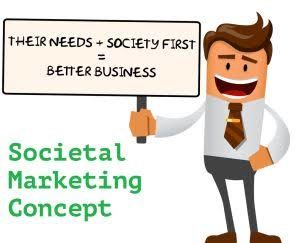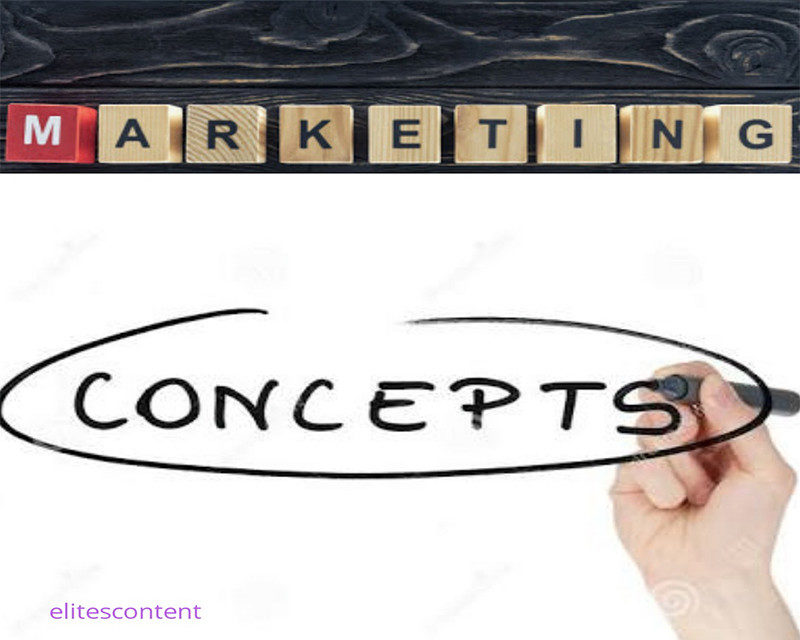What are the marketing philosophies that every business organization believed and how did it affect their actions?
The brain behind the full-time practice of marketing did not suddenly start at a speed. Instead, it took a gradual process and that is what marketing philosophies or marketing orientation is all about.
Over the years, people got involved in different forms of business activities that involved exchange of values. Even when there was no better means of settlement, people continued to give and receive items based on individual needs and wants.
In the days of trade by barter, people still made transactions. People made orders and received what they ordered for. People still produced, designed, communicated, and distributed their products to the final consumers.
Till the 1760s during the era of industrial revolution, when more machines replaced human efforts. Business organizations were still engaged in one form of business activity to another, including production and distribution of goods and services.
A lot of companies like Ford Motors, General Motors, and many others engaged in different business transactions. But the striking thing is, they all performed their business functions in different frames of mind.
The business frames of mind were also know as their line of thoughts, concepts, and orientations which significantly affected their methods of operation.
In the marketing literature, there are five basic frames of minds commonly called marketing philosophies, marketing concepts or marketing orientations. They denote the guiding principles that most businesses have worked with overtime and till date.
What are Marketing Philosophies?
Marketing philosophies are the beliefs and thoughts that guide how firms or individuals perform marketing activities. In most texts or articles, it is mostly used interchangeably with marketing concepts or marketing orientation.
In all, marketing philosophies/orientations or concepts implies how firms or individuals think, their beliefs, guiding principles. These beliefs also controlled the question of what to produce, where to produce, how to produce and whom to produce for. To a very large extent, it determines how people relate with others in the business context.
Marketing philosophies represents the frames of mind or the line of thoughts that influences individuals or firms in making marketing-related decisions. In fact, it answered some basic questions such as:
- What do we produce?
- How do we produce?
- How do we relate with the consumers?
- How do tell the consumers?
- How do we attend to our customers?
- How do we sell what we have produced?
However, there are basic marketing philosophies or marketing orientations that firms and individuals have worked with over time. Each philosophy had its strengths and weaknesses which also lead to the development of another. The revolution of marketing philosophies led to the term “marketing“ that people practice today.
In this article, you will be given simple guide with explanation and definitions of the 5 basic marketing philosophies. It will also show you how they moved to another.
Here are they:
What are Marketing Philosophies, Orientations or Concepts?
Production Concept
The production concept is guided by the philosophy or orientation of making products available efficiently. The major idea behind this orientation is that consumers will always make their ways to buy a product that is readily available at an affordable price regardless of the situation.
The production concept saw consumers as people with less choices as far as availability is concerned. So, they engaged in mass production of goods and services. No wonder, companies that operate on this orientation are known as “Production-Centric.”
A typical example of firms that operated with this frame of mind is Ford Motor Company. The company mass produced a car in 1908 named Model T, without total consideration of consumers choice for its color and other attributes.

Ford’s Model T Image Credit: Google
Any customer can have a car painted with any color he wants so long as it is black.
This was a statement made by Henry Ford in 1909. It typically reveals his orientation or philosophy and attitude towards production-centrism.
However, it is worthy to note that managers guided with the production concept strongly believed in certain philosophies such as:
- Production is the major aspect in business
- Mass production at low cost and affordable price
- Consumers are driven by the desire to get available products
Product Concept
The product concept is guided by the philosophy of quality, performance, and innovative product attributes. The belief here is that consumers will always desire and prefer products that have good quality. Also, just little organizational marketing effort is needed to ensure consumers’ purchase.
In product concept, there is much emphasis on product characteristics, much investments in product design etc. Hence, organizations think towards product concept are known as “product-centric” i.e. too much focus on products alone.
Managers with this frame of mind are guided by certain philosophies such as:
- Quality products will sell itself
- Companies don’t necessarily need much marketing efforts to increase purchases
- Product innovation is the best way to attract consumers
Selling Concept
The selling concept is guided by the view that consumers will buy if products are sold with good selling techniques. The orientations held here is that consumers if left alone, will not purchase much of an organization’s products because they show resistance. Therefore, they need a soft-soap approach to make them buy. These imply that organizations make use of both aggressive selling mechanisms like sales promotion to increase sales.
The selling concept focuses more on selling than building a long-term relationship. It’s ideology emphases on pulling customers using persuasive means.
However, the too much focus on sales with selling techniques made selling concept an incomplete business ideology. It is mostly referred to as ‘hard-sale’ i.e. selling by all means.
Organizations that focused on selling orientation are guided by certain beliefs such as:
- Selling of what the company offers and not necessarily what the market needs.
- Consumers will always some level of resistance to a company’s products
- The major focus of a business is on how to sell its products.
- Consumers need an extra hand to buy more
- Increasing sales volume is a major objective for business organizations
Marketing Concept
The marketing concept is guided by the belief that a focus on needs and wants of the consumers and delivering of satisfaction is the priority of every business organization.
The basic idea behind marketing concept became clear in the 1950s. It holds that organizations need be more effective than competitors in creating, delivering, and communicating value to its consumers in order to attain organizational goals (Kotler, 2000).
Marketing concept affirms that organizations do not sell what they can make but they make what they can sell. This implies that companies direct their marketing efforts towards ensuring that what they provide is exactly what the target market needs which also leads to satisfaction.
Marketing orientation sees consumers as kings who do not need to be coaxed. Who deserve the right product at the right time. i.e. as it pleases the king. The concept can be seen as “Customer-Centric.”
However, the orientation is guided by certain principles such as:
- Consumer is king
- Consumers deserve value
- Focus on consumer satisfaction is the priority of every business organization.
- Production begins with the consumers in mind
Societal Marketing Concept
The concept of societal marketing affirms that organizations must ensure that their product satisfies consumers, in a special consideration of the society’s well being.
The societal marketing philosophy upholds human welfare as the basic objective before profits and satisfaction of wants.
It is a step forward from the marketing concept with belief that mere satisfaction of the consumers’ wants should not be the priority but, the welfare of the whole society.

Image source: iEduNote
Hence, the societal marketing concept is usually known as the “Widened Marketing Concept.” Spreading its focus on the total well being of consumers (economic, social, environmental needs).
The arrival of the societal marketing concept brought about various moves and philosophies such as environmentalism, green marketing, consumerism, cause-marketing, corporate social responsibility etc.
Those who upheld the societal marketing concept are guided by certain philosophies such as:
- A shift from materialism to humanism
- Providing better quality of life rather than a material standard
- Social responsibility is a core function of every business organization
- Commitment to social profit and social auditing
Final Note
The practice of marketing has been in existence for long even before the era of industrial revolution. Organizations engaged in several forms of marketing activities but these activities differ based on the marketing philosophies that governed their decision making processes.
In the marketing literature, there are five basic philosophies or concepts that guide marketing practices. The development of each concept led to another which led to the modern marketing concepts that exist today.
Further references
Kotler, P (2000). Marketing Management. Upper Saddle River, New Jersey: Prentice Hall.

Jackson is an obsessed content marketing specialist. A brand storyteller, not a teller of stories. He is passionate about helping online businesses grow with compelling digital marketing strategies. Follow him on Twitter, LinkedIn, and Instagram.






Great amazing issues here. I am very happy to look your article. Thank you so much and i am taking a look forward to touch you. Will you please drop me a mail?
Oh! Grace, thanks for appreciating my work. You can reach me via mail on [email protected] or dm me on Instagram @jacksoncyprian27. Thanks